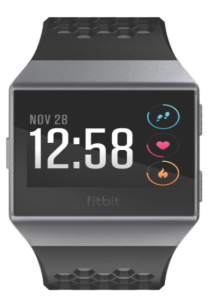 What was envisioned last week came to pass for Envision Healthcare on Sunday. The hospital and physician staffing company filed for Chapter 11 reorganization five years after it was taken private by investment company KKR. At the time of that massive buyout, the value of the company was pegged at $10 billion. Things started to go south for Envision after 2020 with the pandemic drying up patient volumes for two years, with the added factors of regulations kicking in on ‘no surprise’ billing, inflation, staffing shortages, and major fights with health plans around out-of-network inflated charges plus a huge claims dispute with UnitedHealthcare [TTA 12 May]. Ironically, Envision won the main dispute with UHG; that $91 million won in arbitration in an insider’s view would have staved off the bankruptcy this year.
What was envisioned last week came to pass for Envision Healthcare on Sunday. The hospital and physician staffing company filed for Chapter 11 reorganization five years after it was taken private by investment company KKR. At the time of that massive buyout, the value of the company was pegged at $10 billion. Things started to go south for Envision after 2020 with the pandemic drying up patient volumes for two years, with the added factors of regulations kicking in on ‘no surprise’ billing, inflation, staffing shortages, and major fights with health plans around out-of-network inflated charges plus a huge claims dispute with UnitedHealthcare [TTA 12 May]. Ironically, Envision won the main dispute with UHG; that $91 million won in arbitration in an insider’s view would have staved off the bankruptcy this year.
KKR will apparently lose its $3.5 billion equity in the company as $8 billion in debt restructuring takes place. What’s before the court is that the Envision staffing operation will be separated from the AmSurg surgical clinics. Senior lenders will have their debt rearranged into equity into one or the other company. Junior lenders, bondholders, and KKR will receive zero, or as we say locally, bupkis. It’s envisioned (sic) that the restructuring will take about three to four months. Financial Times, Envision release
The hospitals, that’s who! If you believe Meta, it’s the hospitals that abused those poor Pixels, making them do things against their wishes to tattle all sorts of PHI and PII to Big Bad Meta which sends patients all those Nasty Intrusive Ads. Meta is being sued by parties from the ACLU to patients in class action lawsuits on how the Pixel was used on hospital patient portals and scheduling websites. Meta’s argument is that the health systems’ developers could but did not control how the ad trackers were used and that “Meta did not implement or configure” the Pixels used on the health systems’ websites. In fact, Meta claims that they have filtering tools that screen out sensitive data and that would alert the developer. “It’s ultimately the developer, not Meta, that controls the code on its own website and chooses what information to send,” according to the May 5 filing in that busy US District Court of Northern California.
This could influence outcomes in the multitude of lawsuits being filed against health systems like Kaiser Permanente, UCSF Health, and LCMC Health in New Orleans plus Willis-Knighton Health in northwest Louisiana (Healthcare Dive). If the District Court finds that Meta, and possibly other ad trackers such as those from Google, Twitter, or Bing were not inherently liable for personal health data violations that monetized PHI, then the health systems are 100% on the hook for the data breaches (or ‘wiretapping’ in a creative use of terminology). It also makes the potential paydays possibly less lucrative–in the eyes of this Editor, as Meta and Google have far deeper pockets than any ol’ health system. SC Media, Paubox The Meta Pixel backstory here
CVS Health to shut its clinical trials unit by December 2024. CVS, like Walgreens and Walmart, jumped into the clinical trials business during the Covid-19 pandemic, seeing a need in the market with pharmaceutical companies and a ready-made, 100 million deep diverse base of patients among their pharmacy users. CVS cited to Healthcare Dive that the shutdown was to better concentrate on core business. Current active trials on the website include narcolepsy, rheumatoid arthritis, and kidney health. No disclosure as to profitability but CVS has a lot to digest with new buys Signify Health and Oak Street Health.
Amino Health’s $80 million funding is a bright spot in this sideways spring. With a digital guidance model that works with employers and health plans to help 1.6 million members navigate their care, their new funding will be used for technology scaling. Equity and debt financing were led by Transformation Capital, which will be joining the Amino board, and Oxford Finance LLC. Amino is being boosted by the Federal Transparency in Coverage (TIC) Rule which makes pricing disclosure a key part of plan navigation. Amino originally started with a direct-to-consumer model but shifted to enterprise, including brokers and third-party administrators. Amino’s total raise is now $125 million (Crunchbase). Mobihealthnews, Amino release
DocGo’s two services, mobile health and medical transport, essentially swapped revenue this quarter in a better-than-average picture. Their mobile health services area in Q1 fell 19% to $72.9 million from $90.1 million in Q1 2022, while transportation services grew 44% to $40.1 million from $27.8 million in Q1 2022. This added to total revenue of $113 million with a net loss of $3.9 million. Their 2023 revenue guidance remains at $500-$510 million with adjusted EBITDA guidance of $45-$50 million.
 What’s promising here is that it’s a SPAC that didn’t crack like practically every other. DocGo pointed out in their release that they have a backlog of $205 million in total contract value over approximately three years and they have doubled their RFPs. Their patient target for 2023 is 50,000. Share price today on Nasdaq ticked up to $8.77. Considering their high last year of $11.08, they are not doing badly in this time at all. Mobihealthnews .We last saw DocGo providing mobile clinics in a Tennessee pilot with Dollar General [TTA 24 Jan] which now is tied in with the state of Tennessee, plus a pilot in NY and NJ with Redirect Health. They provide services in 26 states and the UK.
What’s promising here is that it’s a SPAC that didn’t crack like practically every other. DocGo pointed out in their release that they have a backlog of $205 million in total contract value over approximately three years and they have doubled their RFPs. Their patient target for 2023 is 50,000. Share price today on Nasdaq ticked up to $8.77. Considering their high last year of $11.08, they are not doing badly in this time at all. Mobihealthnews .We last saw DocGo providing mobile clinics in a Tennessee pilot with Dollar General [TTA 24 Jan] which now is tied in with the state of Tennessee, plus a pilot in NY and NJ with Redirect Health. They provide services in 26 states and the UK.
 This Editor is trying to be as cheerful as the baby at left about baby sock/monitor Owlet, which has had a rough ride in the past two years. Their revenue dropped to $10.7 million in Q1 2023 versus $12 million in Q4 2022 and $21.5 million in Q1 2022. Owlet ended 2021 with a nastygram from the FDA that pulled their original Smart Sock off the market [TTA 4 Dec 2021] but rebounded early in 2022 with the Dream Sock and Dream Duo [TTA 16 Feb 2022] that avoided the claims that sent them into 510(k) Marketing Neverland. Still, they were delisted by the NYSE in December 2022. On the positive side, Owlet wound up 2022 with $69.2 million in revenue and a good-sized private placement of $30 million in February [TTA 18 Mar]. It has submitted to FDA for two products, including the steep de novo climb on an enhancement to the Dream Sock. Now a much smaller company than it was last year, they have reduced operational expenses to $15.1 million from $24.1 million in Q4 2022 to get to breakeven by end of this year and to be relisted on the NYSE in the future. Having followed them since the early ‘telehealth for the bassinet set’ days of 2012-2013, this Editor wishes them bonne chance. Owlet release, Mobihealthnews
This Editor is trying to be as cheerful as the baby at left about baby sock/monitor Owlet, which has had a rough ride in the past two years. Their revenue dropped to $10.7 million in Q1 2023 versus $12 million in Q4 2022 and $21.5 million in Q1 2022. Owlet ended 2021 with a nastygram from the FDA that pulled their original Smart Sock off the market [TTA 4 Dec 2021] but rebounded early in 2022 with the Dream Sock and Dream Duo [TTA 16 Feb 2022] that avoided the claims that sent them into 510(k) Marketing Neverland. Still, they were delisted by the NYSE in December 2022. On the positive side, Owlet wound up 2022 with $69.2 million in revenue and a good-sized private placement of $30 million in February [TTA 18 Mar]. It has submitted to FDA for two products, including the steep de novo climb on an enhancement to the Dream Sock. Now a much smaller company than it was last year, they have reduced operational expenses to $15.1 million from $24.1 million in Q4 2022 to get to breakeven by end of this year and to be relisted on the NYSE in the future. Having followed them since the early ‘telehealth for the bassinet set’ days of 2012-2013, this Editor wishes them bonne chance. Owlet release, Mobihealthnews






















Most Recent Comments